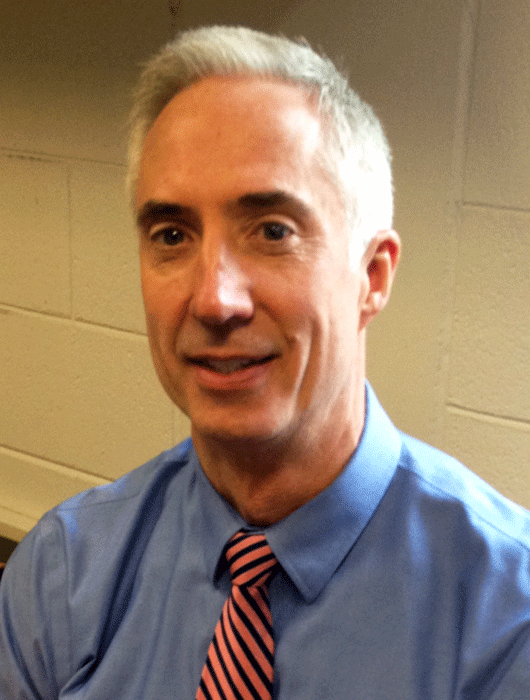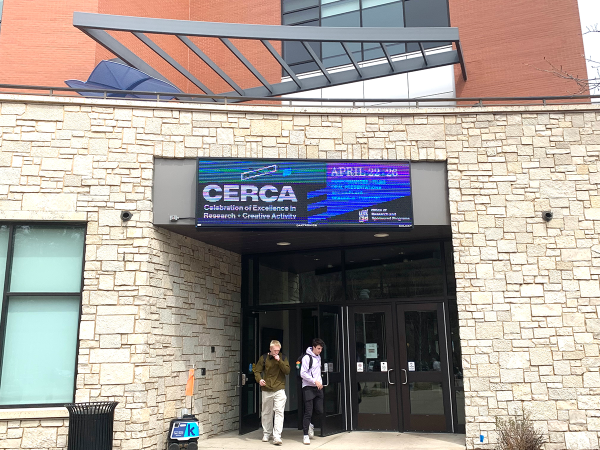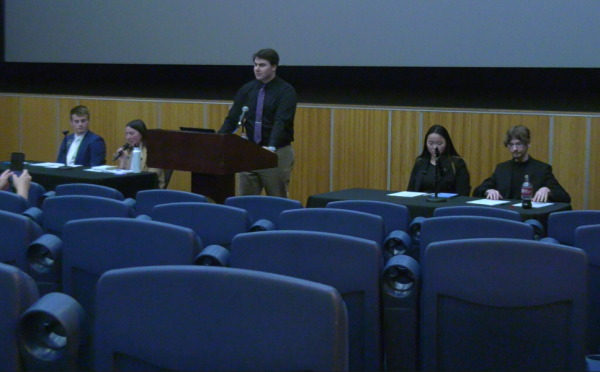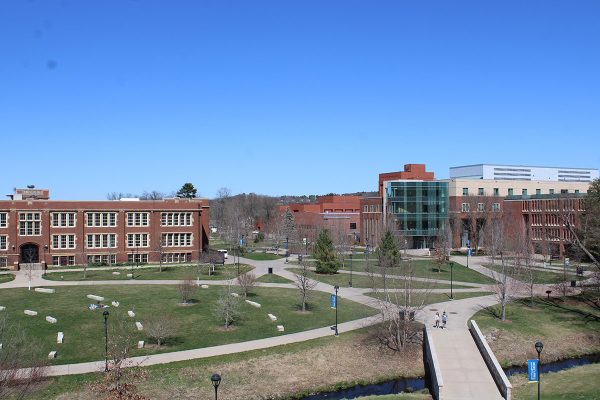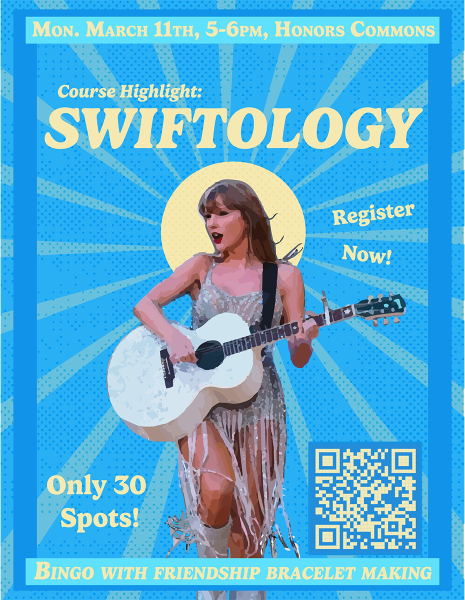University police say the responsible action bill is unnecessary
Blugold Code remains common practice at UW-Eau Claire
April 30, 2014
The safety of someone affected by alcohol poisoning should be a top priority.
Underage drinkers are no exception from this standard, however many underage drinkers who are put in the situation of needing to get help for a friend who has had too much to drink do not adhere to the guidelines of keeping their friend safe.
UW-Eau Claire Chief of Police David Sprick said, many underage drinkers will call for help for their friend and leave them as soon as they know police are on their way to avoid getting an underage citation, rather than wait with them to make sure they are OK.
However, what most students don’t know is that Eau Claire has a policy in place where underage drinkers can most likely avoid receiving a citation if they call for help for a friend needing emergency attention and stay with them until that help arrives. If the student leaves before help arrives, they are still at risk of receiving a citation.
Many underage students are in favor of the Responsible Action Bill, a bill that would require all UW System campuses to provide amnesty to underage drinkers who call for emergency help for a friend and wait with them until help arrives.
Sprick said this bill would be beneficial to other UW campuses that do not have a policy like this in place already, but it would be unnecessary for Eau Claire since the University Police already follow this policy, known as The Blugold Code.
“That’s not a written policy,” Sprick said. “It’s been a long-standing practice since I’ve been here. Our primary concern is for the health, safety and welfare of the individual who has had way too much to drink, and if someone, a ‘Good Samaritan,’ is willing to summon assistance for that individual, we feel that’s doing the right thing.”
The Center for Alcohol Studies and Education is located in Schofield Hall and aims to educate students about alcohol poisoning and staying safe while drinking.
Peggy O’Halloran, director of CASE, said there are many signs to know when someone needs emergency attention.
“Those signs are that a person cannot be awakened, they have cold, clammy, pale or bluish skin, they have slow or irregular breathing and they may be vomiting,” O’Halloran said. “If a student notices any of these symptoms in a friend, they should call 911, turn the person on their side and stay with the person until help arrives. If someone is unsure about whether help is needed, they should err on the side of caution.”
Eau Claire freshman Eva Schmidt said she would feel responsible for a friend if they were in the situation of needing emergency attention and would call for help, even if she was intoxicated herself. However, she said she would be more likely to stay with them if she knew there was no risk of her receiving a citation.
“If you get an underage on your record, you’re pretty much screwed for the future,” Schmidt said. “Everyone is trying to look out for themselves, so nobody wants to get an underage.”
The Responsible Action Bill failed to pass in the Wisconsin State Senate on April 8, so there will be no mandate for UW campuses to have a “Good Samaritan” amnesty policy in place, but The Blugold Code will continue to be honored at Eau Claire.
Sprick said The Blugold Code does not guarantee an underage drinker will not receive a citation and the point of the policy is to honor students for making sure their friends are safe, as long as they follow the guidelines.
He said mandated laws such as the ones in the Responsible Action Bill prevent law enforcement officers from doing their job and can sometimes send the wrong message to underage drinkers.
“These types of laws are sometimes taken to mean, ‘Well I no longer have to take responsibility for my own drinking, conduct or behavior. So what if I’m underage and I drink? I get a free pass,’” he said. “It should be up to professional police officers to decide when it’s appropriate to issue citations.”
Schmidt said she agrees that laws like the Responsible Action Bill could make underage drinkers more careless, but police should be more open to listening to the opinions of younger students regarding their actions.
“The cops are probably not in huge favor for this,” she said. “A lot of older people would argue, ‘They know what they were doing. They should still get in trouble for it.’ Our younger generation is going to be like, ‘We’re trying to do a good thing and help somebody.’”
Sprick said officers do take this into account when using The Blugold Code to determine when it is appropriate to issue a citation or not.
“Typically we do not cite the ‘Good Samaritan’ caller in this situation,” he said. “The priority should be to make sure that this person who is in an incapacitated state survives the evening.”

